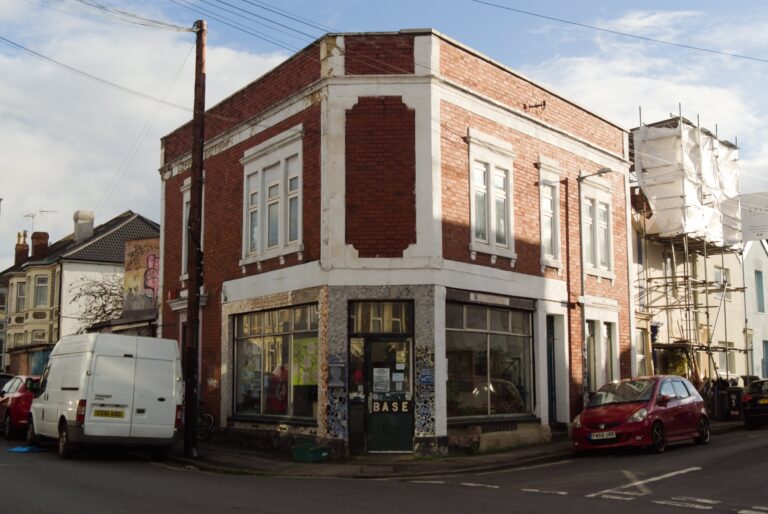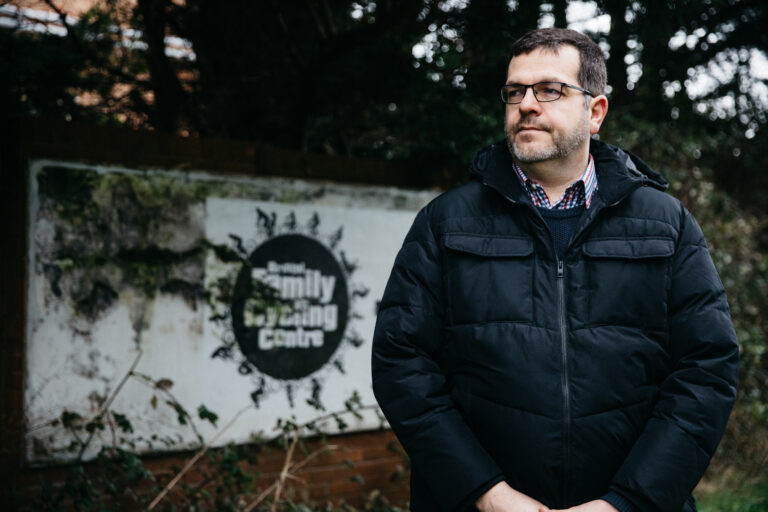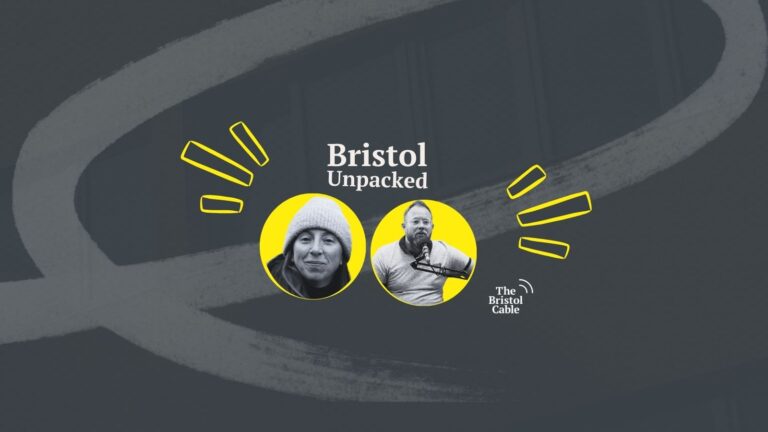Bristol council paying huge sums of money to rent homes from banned landlord

Alex Dimond
In 2023, the Cable revealed that Naomi Knapp, a Bristol landlord barred from letting properties due to poor maintenance and fire safety issues, had got around her banning order by renting them out via short term lets on Airbnb.
After we contacted Airbnb, a huge business in Bristol, it investigated and removed the listings, which were made via a third party. The council told the Cable it was investigating a potential breach of the banning order, and Knapp put many of the homes up for sale.
But almost 18 months later, we have found that multiple properties owned by Knapp have not been sold but are being rented by an even more lucrative route – for use as emergency accommodation for homeless people (see box). Bristol City Council, which pursued the original five-year banning order against Knapp, is now indirectly paying the rogue landlord, its housing lead Barry Parsons has admitted.
Knapp has got around the order by letting homes on long-term leases to a third-party provider, Auvelle Housing, which took more than half a million pounds of public money between April 2024 and January 2025.
We have no evidence Knapp is still involved in hands-on management of the homes, which would breach her banning order. But her ability to continue profiting, from the same council that went to court to stop her letting properties, demonstrates the limits of such orders. It also underlines how much power landlords wield in cities where councils are desperate for anywhere to house people in need.
From ordering homes emptied, to paying thousands to rent them
In September 2023, after Knapp lost an appeal against her order, council officers told her to end her tenancies by December – and she began serving eviction notices. Knapp then owned around 30 homes, mostly in south Bristol, of which roughly a third were tenanted (including to Daisy, the lead reporter of this story). Some tenants later told the Cable they had been offered the option of staying past the eviction date and paying cash-in-hand.
In the months that followed, some of Knapp’s properties were put up for sale (at least one was sold prior to the eviction notices). But Land Registry records and property sites suggested most did not ultimately change hands.
In June 2024, two people told us houses belonging to Knapp were being used by the council as emergency accommodation, managed by another provider called Auvelle Housing. Auvelle, which was incorporated in September 2023 and has yet to file accounts, has one director, Laurent Chalamet, little online presence, and is registered to 85 Great Portland Street, London, ‘home’ to nearly 20,000 other companies.
Registrations at the location are available online for less than £50 a year, with one ad saying: “This prestigious address will enhance your company’s image, making it appear more established and trustworthy to clients and partners.”
Emergency accommodation in Bristol is managed through joint framework contracts between the city council and South Gloucestershire Council. Auvelle was one of eight housing providers listed on a £96 million framework contract for the purchase of emergency accommodation in April 2024, active until 2028.
According to publicly available financial disclosures from Bristol City Council, Auvelle received its first payment of £25,513 that same month. At this point Labour still led the council under mayor Marvin Rees. Control passed to the Green Party under a new committee-run system, after elections in May.
If we’re going to ban landlords because their properties are substandard, and then use them, and pay them, that makes a mockery of the point of the banning order.”
Tom Renhard
Between then and January 2025, Auvelle received variable monthly amounts of up to £90,997 – almost £582,000 in total – according to the council’s records (further spending data has yet to be released). Publicly available records also show the firm received £32,340 in April and June 2024 from South Gloucestershire Council.
Earlier this year, we visited 10 of Knapp’s homes, around a third of her portfolio. While some were empty, residents of three confirmed they had been placed there by the council, and a neighbour said another home was being used to house women fleeing domestic abuse. Records show that under the emergency accommodation framework Auvelle is housing both asylum-seekers and families being rehoused due to safeguarding issues.
A dilemma for the council
Asked for comment on how the council had begun paying to rent properties belonging to a landlord it had sought to ban, Tom Renhard, Labour’s former housing chief, said he had no knowledge of the arrangement. In the final months of the Rees administration, part of Renhard’s responsibilities were split out to another councillor, Kye Dudd who we have approached for comment.
But Renhard, a councillor for Horfield, said, “There is a question here [around money going to Knapp] – if we’re going to ban landlords because their properties are substandard, and then use them, and pay them, that makes a mockery of the point of the banning order.”
Auvelle’s director Laurent Chalamet declined to comment on the arrangements by which he had leased Knapp’s properties before joining the emergency accommodation framework, citing commercial confidentiality. Knapp did not reply to a request for comment.
But Renhard’s successor as the council’s housing lead, Green councillor for Easton Barry Parsons, said because Knapp’s homes had been leased to Auvelle for a period of at least 21 years, she is not legally considered to be involved in their management.
Giles Peaker, a leading housing solicitor, told the Cable that under such long leases, the holder of the lease would typically have responsibility for repairs and maintenence and would be free tochoose sub-tenants, and to receive their rents. As a result Peaker says, the banning order is not being breached.
Parsons added that council officers knew whose homes they were taking on, and that he believes Knapp’s properties make up most of Auvelle’s portfolio.
“The lease will mean she’s making money from these properties [on an ongoing basis],” Parsons, chair of the Homes and Housing Delivery Committee, told the Cable. “[But] do we think it’s more important that Naomi doesn’t make any money out of property she owns, or that those homes, when [there are] 1,600 people living in temporary accommodation and 23,000 on the housing waiting list, are available for somebody to live in?”
‘More than bare habitability’
Parsons said anyone involved in providing emergency accommodation has responsibilities around tenant safeguarding, including gas and electrical certificates. He added that they must have a DBS check, that the standard of living is “more than bare habitability”. The council says properties are subject to in-person inspections.
But Parsons admitted the sheer numbers of homes involved mean it is a struggle for the council to guarantee the quality of emergency accommodation, and that it faces “impossible choices” between people having a roof over their head or not. The Cable has previously visited emergency housing belonging to other providers that is damp, mouldy or in bad condition.
Back when Knapp was evicting her tenants, Parsons was an outspoken advocate of the council taking responsibility for managing her properties, via an extra court order. Such a management order, while legally possible, has yet to be done in the UK – and Parsons said legal advice he had received at the time was that the council would have been unlikely to succeed.
“Does it stick in your craw Knapp is able to make money out of [the situation]? Yeah. But given the difficult dilemma, this is as good an outcome as we could hope for really,” he said.
Nick Ballard, head organiser at renters’ union Acorn said the case starkly illustrated the outsized influence landlords have in the face of an ever-worsening housing crisis. “Across the country, they feel they can act with impunity due to so many councils failing to fine or prosecute landlords,” he said. “But a landlord making money from the council after actually receiving a banning order demonstrates just how pathetic the situation actually is – this simply can’t be allowed to continue.”
Do you have information on Bristol’s temporary accommodation crisis? Contact us in confidence: info@thebristolcable.org.
Independent. Investigative. Indispensable.
Investigative journalism strengthens democracy – it’s a necessity, not a luxury.
The Cable is Bristol’s independent, investigative newsroom. Owned and steered by more than 2,500 members, we produce award-winning journalism that digs deep into what’s happening in Bristol.
We are on a mission to become sustainable, and to do that we need more members. Will you help us get there?
Join the Cable today













